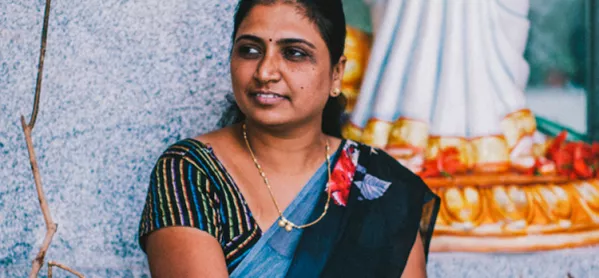In India, there are many barriers preventing girls from accessing the education to which they are entitled, and this is especially prevalent among underprivileged children.
In traditional elements of Indian culture, many believe there is no value in educating a girl, as she will eventually get married and move to live with her husband’s family. Education for these girls is seen by orthodox families as a wasted investment.
Thankfully, things are starting to change. I am a principal on the outskirts of Ahmednagar, in Maharashtra, west-central India. This month my school, as part of the charity Snehalaya, is one of eight Indian NGOs to launch a campaign called #HerVoice, which calls for a stop to the sexual violence experienced by women and girls in India.
As part of this, we took our students to Mumbai to view a screening of the new documentary, He Named Me Malala. It reinforced the fact that many people believe in them and believe they should be educated. I see the girls at my school growing in confidence as a result.
In addition to this, I have been working with the charity Snehalaya, which offers schooling and housing to some of India’s forgotten children, for a year and a half. I have worked hard to change attitudes about girls and education. I go to the slums or red-light districts and talk to parents about the value of education.
Usually, the first time I approach them they are uninterested, but I return again and again to explain that I am educated and have a salary, and can help to support my family now. I tell them that if their daughters were educated and earning a salary, they could bring themselves out of poverty.
I don’t mean to say that all Indian families hold attitudes that prevent girls from going to school. Many, like my own family, think that if they give education to their son and daughter, both will be able to do something to make our country better. An education will give them the opportunities to see our society differently, and know what is important to change. But this view is not held by all.
If we support girls, they can develop their skills and do anything. Education for girls in India is important because if one woman is educated, her whole family will become educated, and this will lead to the bettering of our society at large.
The #HerVoice campaign runs until 7 December. Find out more about the campaign here
Pratibha Khengare was talking to Julia Zulver

